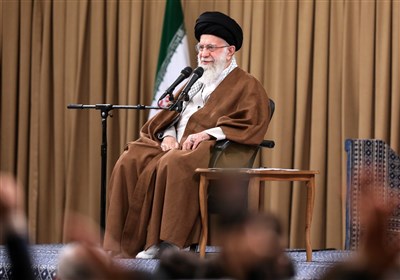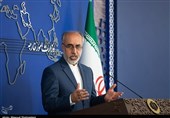German Chancellor Angela Merkel 'Will Not Seek Re-Election in 2021'
TEHRAN (Tasnim) - Angela Merkel has told members of her Christian Democrats party that she won’t seek another term as chancellor when her mandate ends in 2021, German media is reporting, ending a more than decade-long era in which she has dominated European politics.
Merkel also told senior party figures she will not seek re-election as party chairwoman in December, kick starting the race to replace her as CDU candidate in 2021, when the next federal election is due.
The statements were made at a meeting of the party leadership, which was called to discuss two electoral disasters in regional elections in as many weeks. Merkel’s “moving words” were greeted with a standing ovation, sources told German media, The Guardian reported.
It had been widely assumed that this would be Merkel’s final term as chancellor but before the reported remarks she had not confirmed that herself. The 64-year-old has been CDU chairwoman since 2000 and chancellor since 2005.
Whoever becomes the next CDU leader will likely be put forward as the party’s candidate for chancellor in 2021. Merkel’s favored successor is the CDU party secretary general, Annegret Kramp-Karrenbauer, who announced her candidacy on Monday.
German media reported that Friedrich Merz, a former parliamentary leader of the CDU/CSU alliance, was also joining the race to succeed Merkel. Other favorites are the health minister Jens Spahn and the state premier of North Rhine-Westphalia, Armin Laschet.
The German news agency DPA reported that Merkel intends to continue as chancellor for now. Traditionally, the person who holds position of party chair of the government’s largest party also takes position of chancellor, but this is not a binding rule. Previously Merkel has said the two jobs belong together.
Merkel’s predecessor, Gerhard Schroder, made the same move in February 2004, giving up the position of chairman but remaining chancellor until November 2005. At the time, Merkel, who was then leader of the opposition, spoke of a “loss of authority all along the line”, and “the beginning of the end” of Schroder.
Christian Lindner, leader of the liberal FDP party, was the first to demand Merkel’s resignation as chancellor on the back of the news, calling for her ruling conservative bloc to “be prepared for a real new beginning in Germany”.
Merkel’s CDU allies, however, seem ready to accept her decision to stay on as chancellor for now. The former president of the German parliament Norbert Lammert told Die Welt it was acceptable as part of a “transition phase”, whereas the head of the CDU in the German state of Thuringia, Mike Mohring, spoke of a “turning point”. Others greeted the chance for renewal in the party.
The developments on Monday came after the CDU haemorrhaged support in a vote in the western state of Hesse. Preliminary final results from Sunday’s election, seen as decisive for the future of Germany’s increasingly wobbly coalition, showed the CDU slumping to 27%, the party’s worst showing in the state since 1966 and a drop of 11 percentage points since Hesse last went to the polls in 2013.
Merkel’s coalition partner in Berlin, the Social Democrats (SPD), tanked to 19.8% in a dead heat with the resurgent Green party for second place. The result, the SPD’s worst since 1946, also piled pressure on the party leader, Andrea Nahles.
After news of Merkel’s decision not to stand for re-election as leader of the CDU, Nahles ruled out a change in leadership in her party.
“A personnel configuration is not being discussed in the SPD,” she told journalists on Monday morning.
The euro fell to session lows on Monday. Merkel’s weakness at home may limit her capacity to lead in the EU at a time when the bloc is dealing with Brexit, a budget crisis in Italy and the prospect of populist parties making gains at European parliament elections next May.
The trouncing for the German coalition parties on Sunday came shortly after a disastrous result in Bavaria, widely seen as a protest against the failings of the Berlin government. The Hesse result will be seen as further evidence of the shrinking of the mainstream political landscape across Germany and Europe more widely.






